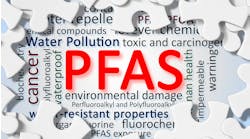Most process plants are struggling with the dual challenges of increased requirements for safe and efficient operation and expected retirement of a large portion of the workforce. Sites likely will lose substantial expert knowledge at a time when it’s of greatest need. This will ratchet up pressure to more quickly develop expertise in newer operators.
Traditionally, operators have built expertise on a particular unit by experiencing numerous events. Such encounters result in a very accurate mental model for predicting what will occur in a certain situation and what actions will be needed to ensure safe operation. However, as a consequence of improved plant reliability and better automation, operators now experience events much less frequently. This makes it increasingly difficult to quickly develop expertise to fill the void created by retirements. Many plants are turning to simulators as the answer to addressing gaps. However, simulators alone won’t guarantee development of the range of skills expert operators possess — especially those skills needed for problem detection, analysis of events and decision-making.
The Center for Operator Performance, which is collaborative effort of operating companies (BP, Chevron, Flint Hills Resources, Marathon, NOVA Chemicals and Suncor Energy), control system vendors (ABB and Emerson Process Management) and academia (Wright State University), is conducting research to identify how to speed acquisition of expertise and improve operator performance. An initial pilot study examined control of two different process units and a pipeline. Here, we summarize some key findings from that work.
Developing Expertise
[Related: Retirement Casts a Long Shadow]
Acquiring knowledge isn’t enough, though. Novices also must engage in deliberate practice applying that knowledge, recognizing key information, setting goals and executing actions. For example, one operating company member of the Center uses decision-making exercises that present operators with cues to an unknown problem to let them practice recognizing a problem, analyzing its causes and generating a solution (instead of just telling them the problem and best solution).
Here are some do’s and don’ts for developing operator expertise:
• Don’t just give large amounts of factual information or rules. A data dump from an expert will be of little value.
• Do create opportunities to learn information as it occurs in real situations. Present console operators with a list of alarms or screen shots of what occurred during an upset and ask them what they think is happening. Coaches with expert technical knowledge then can help them better interpret what they see.
• Don’t just expose novice operators to a variety of generic circumstances. Learning by osmosis is very unreliable.
• Do support practice recognizing cues, expectancies, goals and actions. Expert mental models come from doing not reading. Develop a list of scenarios, such as major changes in feed composition/rate or product slates, that novices should experience while on the console. Prior to execution of each task, have trainees list what they would expect to see, what could go wrong, and what the first indication of a problem would be. Discuss the list and ensure it’s correct prior to task execution.
On-The-Job Training
Like many sectors, the process industry relies heavily on knowledge transferred through on-the-job training (OJT). The expectation is that pairing novices with experts will lead to transfer of appropriate job knowledge. This training approach poses two main issues. First, operators often have difficulty articulating how they know what they know. For this reason, they frequently lean toward telling rather than teaching. For example, a trainee, when inputting a numeric adjustment for a temperature change, asked if that number would suffice. The trainer simply said “yes” rather than communicating why that adjustment, versus another, would give the desired result.
The second issue is that expert operators over time have developed different techniques for doing their work. This may lead to inconsistent information transfer. New operators may learn varying techniques for doing their work and get dissimilar assessments of what’s important as well as diverse views of job expectations. For example, people define “critical” differently. Some say if something out-of-the-ordinary happens and I react to it, it’s not critical — it’s my job. However, some people consider any unexpected change to be a critical event. Others define critical as a problem that occurs without explanation. Defining and training for “critical situations” differently can result in uneven response to events.
This fragmented understanding contributes to decreased operator performance. Further, it can feed into a vicious cycle as newer operators become trainers.
To enhance OJT:
• Don’tjust turn the trainee loose with a crew.
• Do use structured OJT after initial classroom sessions. For example, one plant has trainers follow novices’ progress to ensure they are learning proper technique and valid knowledge. Trainees should get a manual listing skills and knowledge to master while shadowing actual operators. Prior to each shift these operators should review the list with trainees.
• Don’t presume that because people know the job they can teach it.
• Do have training materials. This ensures trainers provide consistent coaching. Consider, for instance, providing structured exercises to help the senior operator on the crew convey key knowledge elements. Establish training goals for each shift — teaching novices should be as much a part of shift objectives as meeting production targets.
• Don’t leave important information subject to interpretation.
• Do ensure tasks are defined. For example, clarify the meaning of “unsafe” and the conditions requiring unit shutdown. Discuss one safe operating limit or production target each day. Cover failure of compliance and its meaning. For example, is not achieving feed-rate targets acceptable if meeting them would require flaring? Spell out the interaction among multiple constraints an operator faces.
Tailored Approach
While operators may come from similar industries and positions, they likely boast varying levels of experience. So, training programs focusing on baseline or rudimentary skills and knowledge may provide little value for some people. For instance, many experienced operators have expressed frustration that they didn’t gain new knowledge during recertification processes because these didn’t build on expertise they had developed. Besides wasting peoples’ time “learning” material they’ve already mastered, one-size-fits-all training programs often fail to teach advanced skills.
To support diverse trainees:
• Don’t offer one training program that’s the same for every trainee. • Do take into account the experience and knowledge of individuals. Do they already possess some of the required knowledge from their prior work? Have they developed more advanced knowledge through their experiences? The program should allow trainees to progress as soon as they have mastered the material.
The Impact Of Automation
Automation can diminish expertise in three ways. First, it can dull the skills of veterans. Second, it can slow the rate of learning, so people take much longer to build up their expertise. And third, it can teach dysfunctional skills that will actively interfere with building expertise in the future.
Information technology can inflict this damage by:
• limiting operators’ abilities to access and interpret trends, understand data interrelationships and identify data shifts;
• reducing operators’ understanding of processes by hiding the workings of systems; and
• obstructing operators’ own assessment of a situation by isolating them from processes and only providing recommendations and alerts, hampering operators’ abilities to spot anomalies and patterns by removing variances from representations.
Here’re some tips for using automation to support operator performance:
• Don’t rely on automated systems that prevent operators from noticing changes and making adjustments — that essentially turn them into passive monitors.
• Do enable trainees to see the workings of the automation, either directly or through training material. For example, create decision trees that reflect the advanced control program. When the program makes a major adjustment to the process, have trainees follow the decision tree to assess why such a change might have been made (e.g., did cooling water temperature increase and create a constraint on the process?).
A Practical Approach
Most plants with an aging workforce face an increasingly urgent need to build staff expertise. Some are counting on high fidelity simulation, as though mere exposure will create skill. Others are hoping that contact between novices and experts will result in knowledge transfer. A more practical middle ground that involves doing some simple things to enhance learning offers a better prospect for increasing expertise.
David A. Strobhar is principal human factors engineer for Beville Engineering, Dayton, Ohio. Danyele Harris-Thompson is a senior scientist at Klein Associates, Fairborn, Ohio. E-mail them at [email protected] and [email protected].



